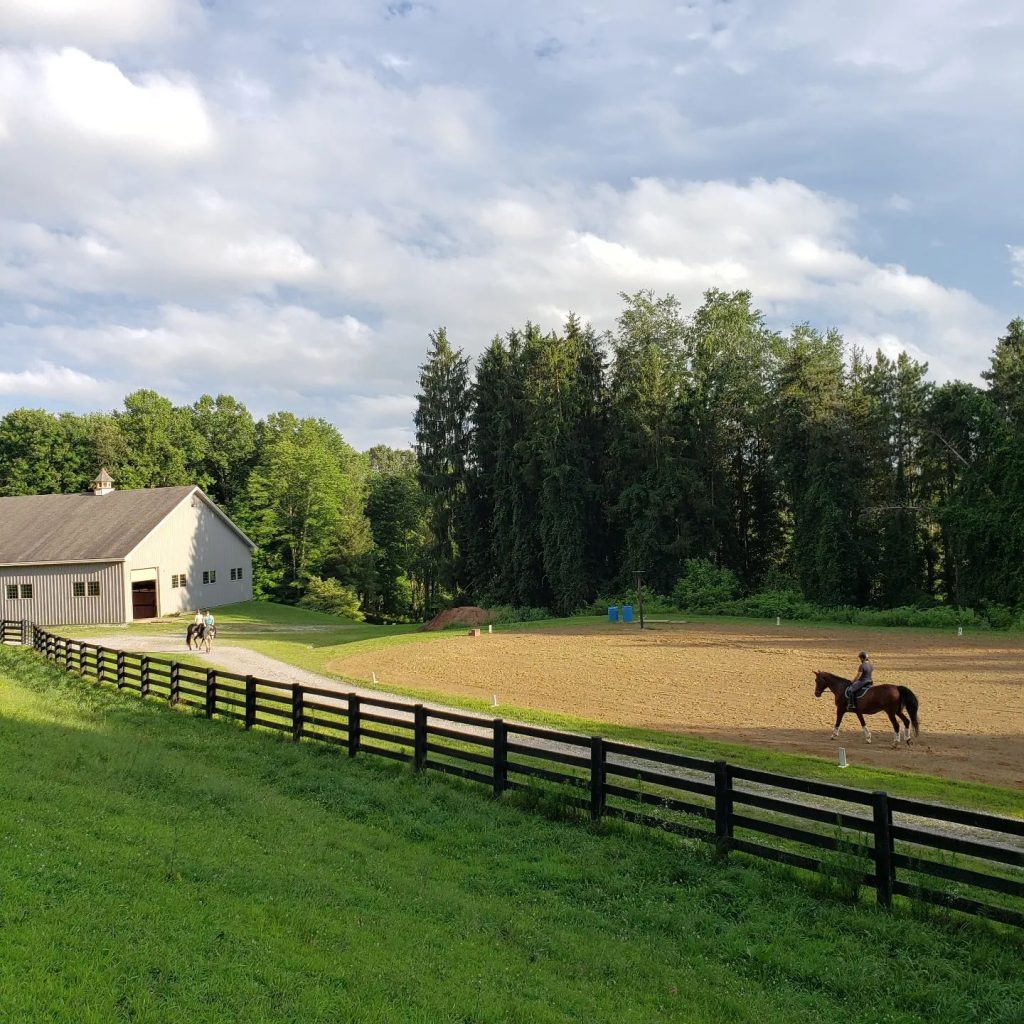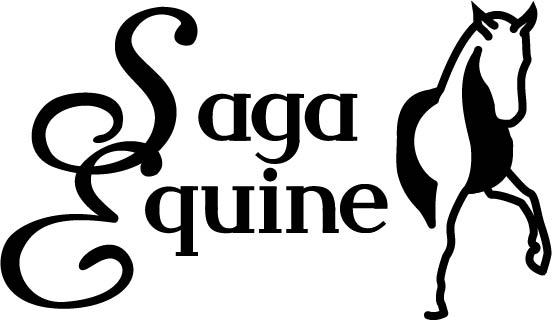
Our full online course teaches you everything you need to begin work as an equine massage professional within the constraints of your state’s veterinary board requirements.


Our course is one of the most comprehensive courses available to prepare you for a career as an equine massage professional. Everyone starts somewhere. This course will provide the building blocks, essential knowledge, and strong foundation necessary to embark on a lifetime of learning and growth in equine massage.
Does certification or accreditation make you a professional?
No one ever reaches their complete potential in a month, a year, or a lifetime, nor should they. Professionals, in any industry, consider themselves to be lifelong students. There is always something more to learn or know. A professional is never satisfied with the status quo. He or she has to push the boundaries of their knowledge and test the theories and modalities they’ve learned in the real world. The desire to continually grow and learn is what makes a professional, a professional.
Certification is only the first step toward becoming a professional. So… what, exactly, is certification and what, exactly, is accreditation? What can an equine massage professional do and what can’t they?
Your Veterinary Board has the Answer
We receive a lot of questions about accreditation, certification, licensure, membership, and state requirements and we’re sorry but there is no simple answer to those questions. We’ll attempt to at least clarify the subject a little bit here, but, you have to do your own due diligence.
Many states allow equine massage therapists to work independently, however, some states require supervision and association with a veterinarian in order to practice as an equine or animal body work professional.
There are numerous associations and organizations for certification in equine massage, none of them replaces the veterinary board and state laws for the state which you will practice in. The American Veterinary Medical Association has information about the ongoing debate over scope of practice in veterinary medicine. It’s all about interpretation.
There is a lot of confusion about accreditation, licensure, and certification.
According to the International Association of Animal Massage & Bodywork / Association of Canine Water Therapy:
Disclaimer!
United States Animal Massage: Laws by State
Before registering for a US class or if you are a US resident intending to take a class and use the skills for a business, we request that you read the individual state law pertaining to the state which you intend to work. You may reside in a state and choose to work in a neighboring state which allows you to practice within the parameters of that state law.While every effort has been made to make sure these are correct, these versions may not be the current law. Court decisions amend them, and a host of other factors come into play when interpreting them. If you read most any practice act, unless it specifically allows massage, most can be interpreted in either direction depending on who is arguing the case.
Again please understand that state laws constantly change and are often left up to interpretation of the current board. International Association of Animal Massage and Bodywork, its owners and employees will not be held accountable for any information listed in this summary. These summaries are merely here as a collection of information and summaries that we have run across in our searches. If you need a thorough review and analysis of your state’s practice act wording and exemptions, we advise you to evaluate the full text of the statute and regulations which can be found on most state government sites, and consult a knowledgeable attorney.
IAAMB/ACWT (International Association of Animal Massage & Bodywork / Association of Canine Water Therapy
Accreditation
Accreditation is a term normally applied to colleges and universities of higher education and refers to the recognition of those colleges and universities by the NACIQI (National Advisory Committee on Institutional Quality and Integrity). The NACIQI advises the U.S. Department of Education as to whether a college has the facilities, educators, and curriculum to provide courses and experience that would lead to a degree, such as an associates or bachelors degree as well as masters and doctoral degrees. Accreditation can come from other sources as well when referring to schools that do not offer degree programs but these accreditations tend to be recognized selectively by individual state boards, don’t always transfer to all states, and are not recognized by a federal regulating agency.
Certification
Certification, on the other hand is an endorsement by a school or training facility that certifies a person has completed the requirements to be competent in a skill or practice, therefore a certification program is an endorsement of an individuals skills and/or knowledge in a subject area. Certification is like your grade card that shows you passed the subject. Passing the subject allows you to pursue either licensure or registration with an organization, usually a governmental entity, in order to work for an employer or practice your skill as an independent business owner. State veterinary boards are the ultimate source of information as to whether or how, you, as an equine massage professional, can perform your skills in your state. Furthermore the state veterinary board may limit your scope of practice to simple massage or allow you to practice as you deem appropriate with no supervision at all.
Diagnosis and treatment of lameness and diseases is NOT within the scope of practice of an equine massage professional. Equine massage is an adjunctive and preventative modality to be used in conjunction with other professionals and practitioners.
Licensure
Licensure refers to a requirement by a state governmental board or agency for an individual to practice a skill or profession. For instance, doctors, teachers, engineers, and architects are all required to be licensed by a governmental regulatory board. Licensure is granted by the state and not by an individual school. To the best of our knowledge, licensure to practice equine massage is not required in any state. Here is an article on some of the differences in terminology.
Membership
Membership can be obtained from one of many organizations by simply becoming a member of those organizations after a couple of years of documented work as an equine massage professional or by presenting evidence of course work completed by an equine massage school which is a member of their organization and/or sitting for a test which demonstrates your proficiency and knowledge e.g. the NBCAAM (National Board of Certification for Animal Acupressure & Massage) or the IAAMB (International Association of Animal Massage & Bodywork).
However, becoming a member of these organizations does not allow you to bypass your states veterinary board requirements. All equine massage practitioners, regardless of where or how they received their certification, must comply with their states requirements, which is normally in the form of either direct supervision by a veterinarian or referral by a veterinarian.
The trend in equine massage seems to be, at the time of this writing, that many states are moving towards allowing equine professional’s greater autonomy and independence, however, your state veterinary board is the final source for information.
You can find out more about your states requirements here: iaamb.org/resources/laws-by-state/
Hope that cleared things up a bit! Whew!

Now… since you’re still here, reading, you must:
- Love horses.
- Want flexibility in your work schedule.
- Enjoy helping others.
- Be looking for independence.
- Want more satisfaction from doing a job well.
- Want greater control of your earning potential.
- Want to be your own boss.
- Want to be a part of a growing segment of the equine industry which spends $122 billion dollars annually.
About the Equine Massage Program
Our online program is designed to give students all of the information and skills they need for success as an equine massage professional. Our 3-Step approach has proven successful for students of all learning styles and gives them the tools they need to help their equine clients and their owners. You can learn at your own pace in the comfort of your own home. In the online program, all lectures, course materials and downloadable lecture pdfs are provided in the online classroom. Fifty hours of classroom lectures & assignments cover: anatomy & physiology, biomechanics, gait analysis, conformation, and essential business information that most courses only skip over. You, however, will get the benefit of Sarah’s Masters Degree in Business Administration and more than twenty-five years of business and consulting experience to ensure that you have the valuable knowledge of HOW a business works so that you can be assured of success. Your course includes:

Equine Science
- Equine Anatomy & Physiology
- Equine Biomechanics
- Conformation
- Gait Analysis
- Terminology

Equine Massage
- The Benefits of Massage
- Recognizing Discomfort
- Massage Techniques
- Mobilization
- Stretching

Equine Business
- Entrepreneurship
- Marketing
- Business Planning
- Business Law & Risk
- and more
In addition to book learning and lectures, students will demonstrate their knowledge to further enhance their learning. All assignments in the course are designed give students the opportunity to engage with their instructors and receive constructive feedback that will improve their understanding of the topics covered and give them the confidence needed to work independently.
Our students have a proven track record of success in the industry because they are equipped with the knowledge, technical skills and business awareness they need to be excellent massage practitioners and business owners.

Your success means we succeeded.
We want you to succeed because your success means we succeeded in providing you with the knowledge, resources, and skills to become outstanding in your chosen field of endeavor. We’re here to answer your questions, provide guidance, and maybe just the occasional pep talk.
We want you to be a positive force in the industry and an example of professionalism, courtesy, and competency. Mediocrity is a bad word in our barn… so is the phrase; “I can’t.”
Henry Ford once said:
You either think you can, or you think you can’t. You’re right either way!
Henry Ford
You can do it!


Your dream job awaits. What are you waiting for?
ONLINE COURSE



